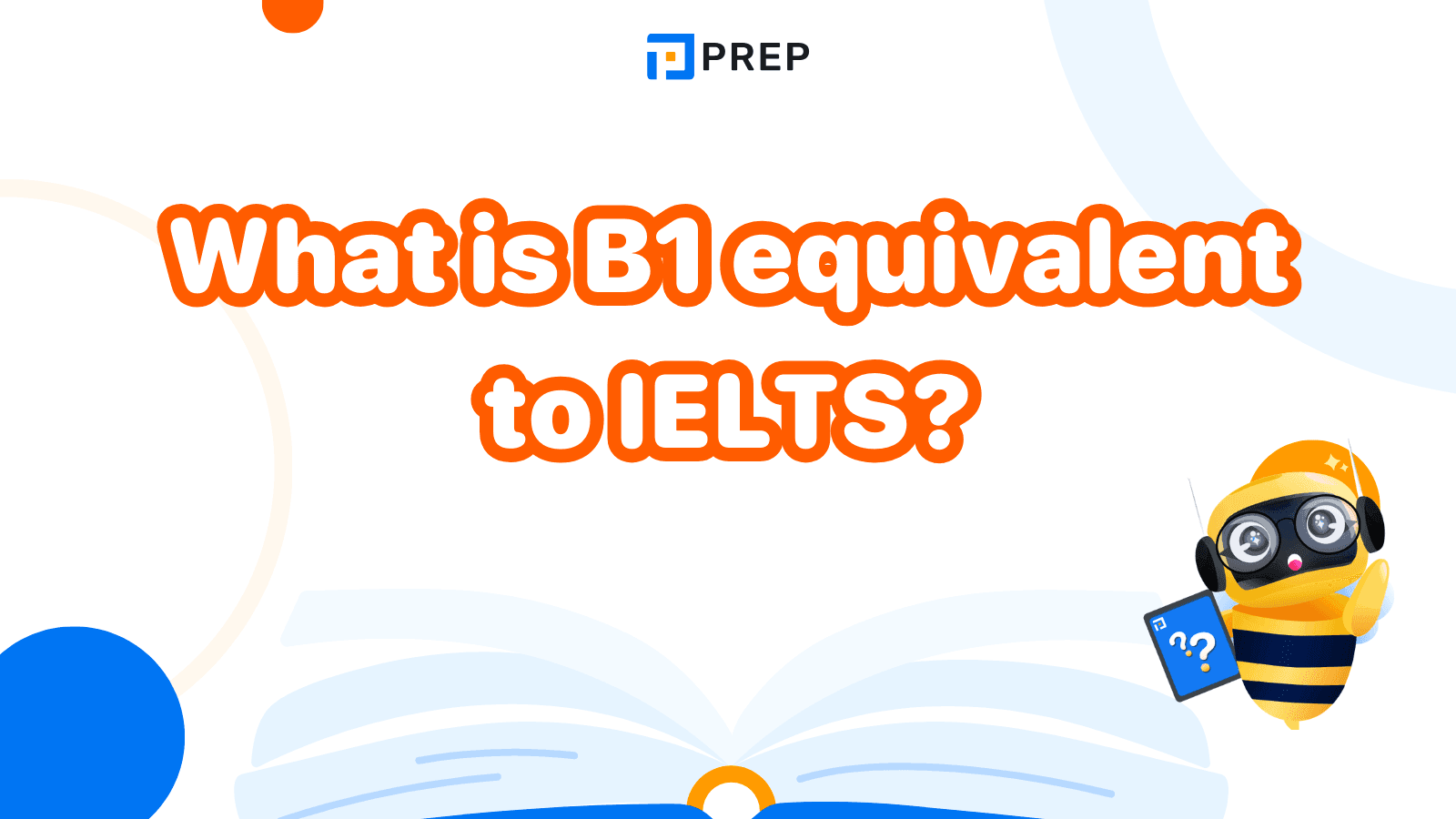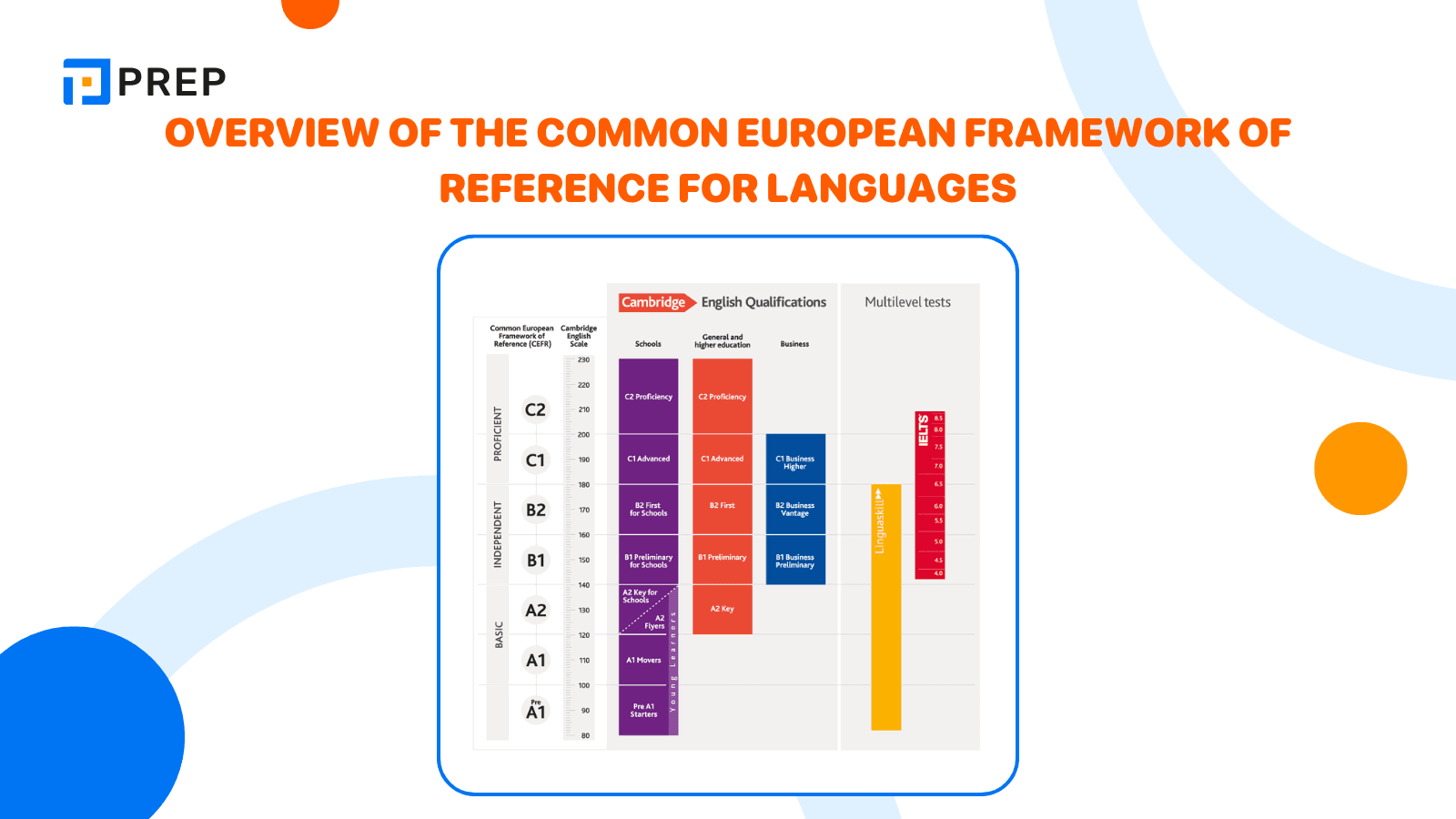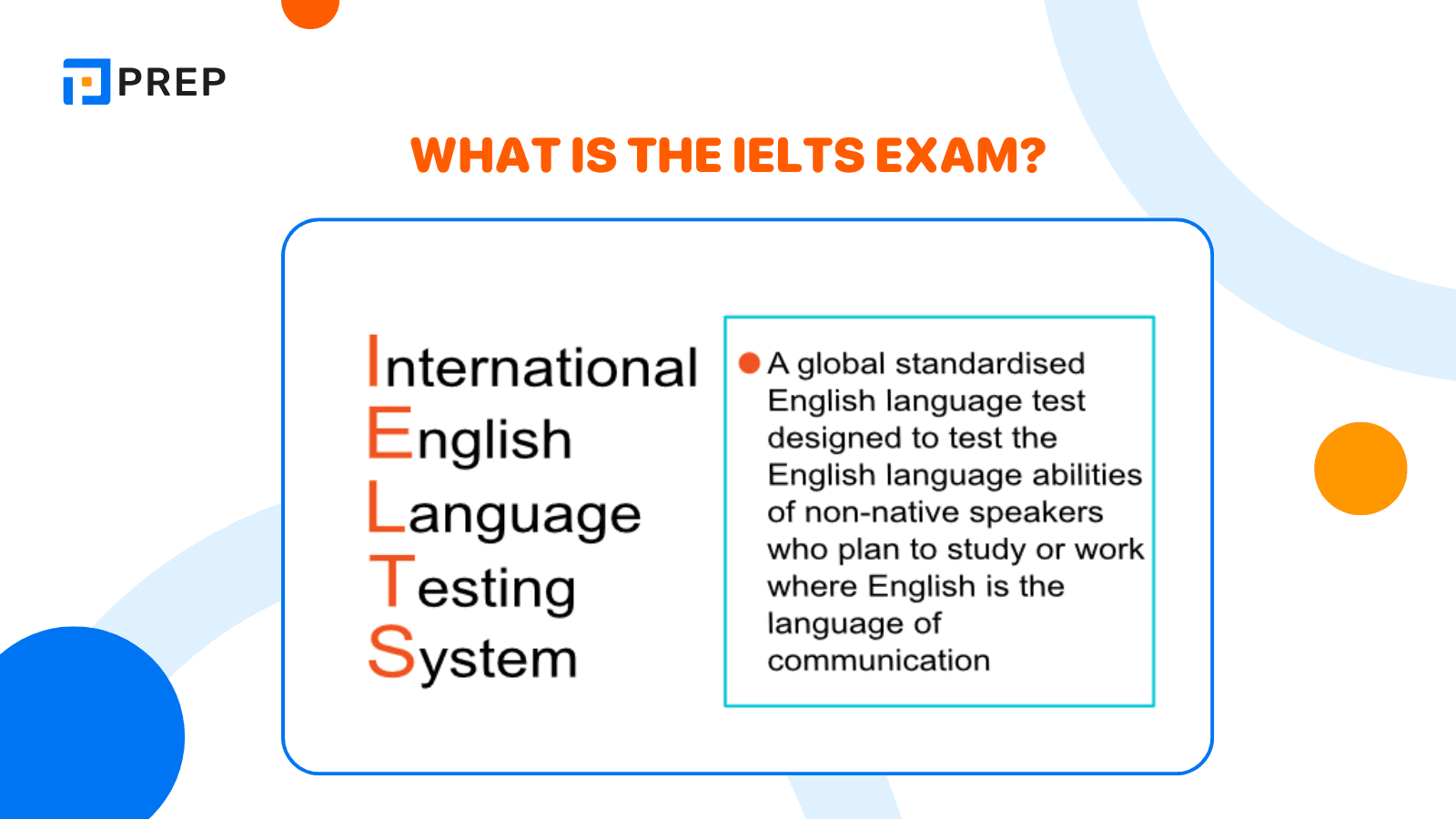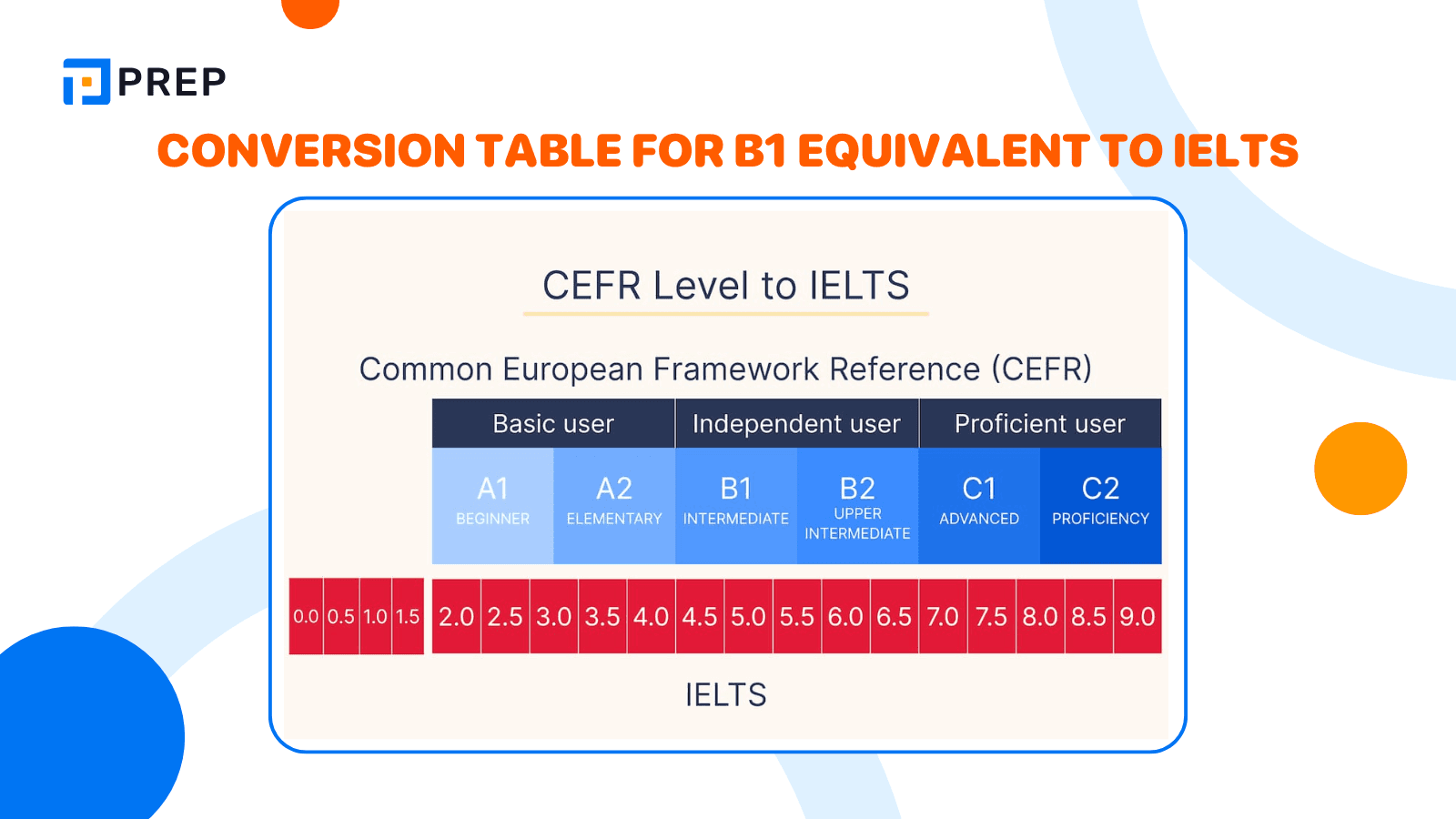B1 Equivalent to IELTS: Band Score, Uses, and Guidance
Wondering what B1 equivalent to IELTS is? This guide explains the CEFR B1 level, its IELTS band score comparison, and real-life applications. Learn how B1 fits into academic study, job requirements, and visa processes, plus tips if you aim to move from B1 to higher IELTS bands.

I. What Is B1 Level in English?
B1 is part of the Common European Framework of Reference for Languages (CEFR), a standardized system used worldwide to describe language proficiency. The CEFR includes six levels in total: A1, A2 (basic user); B1, B2 (independent user); and C1, C2 (proficient user). In this system, B1 represents a “lower-intermediate” or “intermediate” level of English.

At the B1 level, learners are considered independent users of English. They can handle everyday communication in familiar contexts and express themselves in simple, connected sentences.
Learners at B1 can typically:
- Understand the main points of clear standard input on familiar topics such as work, school, or leisure
- Write emails and short texts about everyday matters or routine needs
- Speak about personal experiences, plans, and feelings using basic connectors (e.g., first, then, because)
- Read simple academic or practical texts and understand the general meaning
- Handle most travel situations and basic service-related interactions independently
This level marks a key transition point for learners. While they may still lack range and fluency in complex situations, B1 users have enough competency to function in daily life and begin preparing for standardized exams like IELTS or TOEFL, understanding how IELTS Listening band scores relate to their current level.
Many English courses, placement tests, and programs (especially business English or IELTS prep) use the CEFR scale to define course entry levels, with B1 often being the minimum standard for more advanced or exam-focused learning pathways.
II. B1 Equivalent to IELTS – Band Score Comparison
When learners wonder how their English proficiency aligns with the IELTS scale, one of the most common questions is: “What is B1 equivalent to in IELTS?”. Understanding this equivalence is important for exam preparation, visa applications, and course placement.

Official CEFR–IELTS Conversion
According to conversion charts published by trusted organizations such as Cambridge English and IELTS.org, the B1 level is generally equivalent to an IELTS score between 4.0 and 5.0.
Here is a typical comparison:
|
CEFR Level |
IELTS Band (Approximate) |
|
A2 |
3.0 – 4.0 |
|
B1 |
4.0 – 5.0 |
|
B2 |
5.5 – 6.5 |
|
C1 |
7.0 – 8.0 |
|
C2 |
8.5 – 9.0 |
While there is no official one-to-one match, this range is widely accepted by universities, immigration agencies, and employers to interpret CEFR levels in relation to IELTS band scores.

Special Note on IELTS 5.5
Many learners ask whether a score like IELTS 5.5 belongs to B1 or B2. The answer depends on the specific context:
- Academically, 5.5 is often interpreted as a low B2
- For visa or immigration purposes, it may still meet B1-level requirements, especially where the minimum cut-off is “B1 CEFR or equivalent”
- In course placement, some institutions may place a 5.5 scorer in an upper-B1 or pre-B2 class
Therefore, if your IELTS score is around 5.0 to 5.5, it is safe to say you are at the upper B1 to low B2 threshold — a good stage to start applying IELTS Listening tips and techniques for band improvement.
III. Applications of B1 Equivalent to IELTS
Understanding that B1 corresponds to an IELTS score of approximately 4.0 to 5.0 is not only useful for academic purposes but also essential for work, study, and visa-related processes in many English-speaking countries. Below are common areas where this equivalency is applied.
Academic and Professional Requirements
Many vocational courses, certificate programs, or foundation-year university tracks require English proficiency at a B1 or IELTS 4.5–5.0 level. Some examples include:
- Hospitality or tourism training programs
- Foundation courses for higher education
- Short-term business English or communication certificates
Employers in sectors like retail, customer service, or manual work may also accept candidates with B1/IELTS 5.0 English, especially in roles that involve basic communication.
Taking the IELTS Exam at B1 Level
Learners at the B1 level are considered ready to begin official IELTS preparation, especially if they aim to reach higher bands like 5.5–6.5 in the medium term. For example:
- A learner at B1 can realistically achieve band 5.0 within 2–3 months of focused training.
- Many IELTS General Training test-takers fall within the B1 level at the start of preparation.
At this stage, it's advisable to:
- Focus on vocabulary development
- Improve fluency in speaking and writing
- Build confidence with IELTS-style tasks (especially Listening and Reading)
Starting IELTS early at this level helps learners adjust to the format and build long-term exam readiness.
Visa and Immigration Use (UK, Australia, Canada)
Certain immigration pathways require proof of English ability at B1 level, which can be met through an IELTS test result. For example:
- UKVI applications (Family or Spouse visa) often require IELTS for UKVI Academic or General Training at CEFR B1 (IELTS score: 4.0 in all skills)
- Australia may assess English via CEFR or IELTS, depending on the visa subclass
- Canada, while primarily using CLB, may accept equivalents or comparisons for some pathways
Above, PREP has provided a detailed explanation of what B1 level means in English, how it converts to IELTS scores, and how this equivalence applies to study, work, and visa purposes. If you have any questions or need help preparing from B1 to IELTS, feel free to leave a comment—PREP will get back to you as soon as possible!

Hi I'm Chloe, and I am currently serving as an Product Content Administrator at Prep Education. With over five years of experience in independent online IELTS study and exam preparation, I am confident in my ability to support learners in achieving their highest possible scores.
Comment
Premium content
View allPersonalized roadmap
Most read












